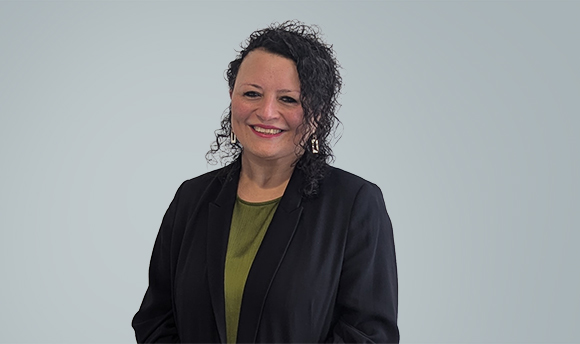Mental Health and Psychosocial Support - MSc
Do you want to make a difference to the health and wellbeing of people in settings affected by conflicts, wars, displacement, and disasters? Are you passionate about contributing to psychosocial wellbeing of affected populations or looking for a qualification that will enable you to work at a senior level in health, development and humanitarian policy and practice in the UK or abroad, particularly settings affected by conflicts, wars, displacement, and disasters? This MSc in Mental Health and Psychosocial Support (MHPSS) from QMU's Institute for Global Health and Development could be the perfect stepping-stone for your career.
The course focuses on the current challenges, policy debates and skillsets required for global responses aiming to improve the mental health and psychosocial well-being of populations affected by poverty, instability, displacement, and conflict. This course is part of a broader Global and Public Health Framework. It combines our comprehensive global health foundation with a specific focus in MHPSS. The course will be particularly attractive to those working in humanitarian settings, health practitioners, and community and development workers, who are looking to further their theoretical knowledge and practical skills in order to consolidate and extend their learning in the area of how to incorporate community-based MHPSS strategies and consideration into other health and humanitarian provision through mainstreaming. It will equip you to work effectively at senior level to promote mental health and psychosocial wellbeing of people through effective and responsive programming.
In addition to the shared modules that all students of QMU's Institute for Global Health and Development take in the autumn semester, you’ll take two pathway-specific modules (Community-Based Mental Health and Psychosocial Support & Project Design and Management) that bring these MHPSS issues to life.
The course offers flexibility in module choice and can be studied full time or part time.
Why QMU?
The Institute for Global Health and Development (IGHD) at QMU offers a range of postgraduate courses designed for those who wish to work in health policy and practice, addressing health inequities from local communities to global settings.
- Unique academic institution: Our researchers are at the forefront of global MHPSS, international development, humanitarian aid and health practice, and we are known for informing and influencing policy and practice in fragile and conflict-affected settings, humanitarian contexts, and displacement situations.
- Transform careers and communities: Our courses put a strong focus on helping you to develop the skills necessary to design and lead effective initiatives that build on existing capacities in individuals, communities and in society to address and sustainable reduce root causes of psychological distress, social tensions and systemic inequities. The course engages participants in critical reflection of foundational theories and approaches to MHPSS, focusing in particular on the psychological and social elements of health and well-being and on community-based approaches to facilitating programmes and services that improve multi-dimensional health and well-being. Engaging socio-ecological and systems thinking and best practices in international aid, development and MHPSS, the course will equip you improve programmes and services and the long-term mental health and well-being individuals and families in fragile contexts, in emergencies and within healthcare systems.
- Access to expertise and industry connections: You will learn from leading experts in MHPSS and build lasting professional relationships. At IGHD we work directly with humanitarian agencies, ministries of health, international and national organisations, UK charities and affected communities to bring the latest practical learning, guidance and innovation into the classroom. We also work in close collaboration with partners to shape global humanitarian and MHPSS policies and to identify and reinforce real community-based and systems-integrated solutions to remove barriers to lasting improvements in health, mental health and well-being. We have links with various bodies, including:
- British Red Cross
- Mental Health and Psychosocial Support Network>
- Mental Health and Psychosocial Support Academy
- Scottish International Development Alliance
- Development Studies Association
- Friendship Bench Zimbabwe
- The Red Cross Red Crescent (RCRC) Movement MHPSS Hub
- Scottish Government
- Scottish Refugee Council International Organization for Migration
- UNHCR
- World Health Organization Special Initiative for Mental Health
- World Vision
- A commitment to equity: Our work at IGHD addresses the health and wellbeing of those in greatest need, wherever they may be—often in low- and middle-income countries.
- Expertise that matters: Our teaching and research expertise spans refugee integration and psycho-social assistance, support to communities fragile and conflict-affected settings, person-centred and contextually responsive programming, health systems strengthening, mainstreaming psycho-social approaches across sectors, cultural competency and faith literacy in mental health and well-being supports for displaced populations, design and management of effective programmes and service, gender-transformative approaches, disability inclusive development, climate change, and priority health issues including mental health, chronic disease and sexual and reproductive health and rights. Our teaching team brings real-world case studies and insights from their field experience across diverse contexts including Europe, Latin America, the Middle East, South Asia, Southeast Asia and Sub-Saharan Africa.
Studying MSc Mental Health and Psychosocial Support
At IGHD, mental health and psychosocial support (MHPSS) is approached with a focus on the cultural, environmental and socio-relational factors that have a cumulative effect on the psychological health and well-being of individuals, families and communities, alongside biological factors. You will examine the bio-psycho-social approach to mental health alongside diverse, contextually shaped conceptualisations of mental health and wellbeing; you will explore the role of daily stressors alongside trauma and other causal contributors of declining well-being in order to understand how to best design and target programmes to sustainably improve mental health and psychosocial well-being; you will reflect on and apply the Inter-Agency Standing Committee’s six core principles of MHPSS, intervention framework and the ‘essential elements’ for stabilisation and recovery to boost the mental health and well-being outcomes of any project or service as you critique real-world projects; you will learn how to critique and adapt scalable MHPSS interventions such as Psychological First Aid and other initiatives in order to strengthen the relevance and effectiveness; you will also engage with the latest innovations in MHPSS and you will learn tools to improve the gender-sensitivity, conflict-sensitivity and disability inclusiveness of any programme or service; as you engage with these concepts you will strengthen key employable skills related to conducting assessments, project planning, proposal writing and donor development.
Critically you will also reflect on the unique needs and capacities of staff and volunteers working in fragile, emergency and under-resourced healthcare contexts, examine approaches to team leadership and management, deepen your understanding of the systems and conditions that preserve and promote workforce wellbeing and developing a plan tailored to a context of your choice to boost effective care for staff and volunteers.
These outcomes are achieved by building content around real-life case examples, offering multiple opportunities to discuss, critique and apply the course concepts in the classroom and independently, engaging world-leading experts in the learning environment and developing assessment options that enable students to choose assessments that are relevant to their context, professional focus and sector interests. Additionally, IGHD students have opportunities to apply for extended paid and volunteer work experience opportunities with local and global MHPSS partners in order to consolidate learning, expand professional networks and build further skills for career advancement. The course content and learning outcomes have been shaped by global standards and best practices for humanitarian response, international development, community development and MHPSS, ensuring that MHPSS graduates leave the course with core concepts and skills required in the industry.
Structure and exit awards
You can opt to study for the full MSc (180 credits), a PgDip (120 credits) or a PgCert (60 credits). Please note all students will initially enrol onto the MSc course.
You can also register as an associate student to complete a single module for Continuing Professional Development (CPD). On completion of a single module, you may wish to complete further modules and progress your studies to a named award. A variety of modules can be studied for CPD. Contact IGHD for more information.
Teaching, learning and assessment
Our teaching is guided by case-based learning, complemented with lectures, seminars, tutorials, simulation exercises, and projects. Assessment is continuous and incorporates essays, action plans, projects, and presentations.
For your dissertation project, you will choose a topic relevant to MHPSS, in coordination with your academic supervisor. You can choose to do a desk-based study involving a literature review or potentially conduct primary data collection in collaboration with national or international organisations working in MHPSS.
Teaching hours and attendance
Your exact attendance requirements at QMU will depend on the module you are studying and whether you are studying full-time or part-time. In addition, for each module students spend approximately 10-12 hours each week preparing class work independently and with colleagues, including readings and exercises available on dedicated web-based learning platforms
Class sizes
We expect approximately 10-15 students to enroll for this course each year.
Teaching staff
You can read more about the teaching staff on this course at the bottom of this page. Please note that teaching staff is subject to change.
PgCert
For the award of PgCert you will complete the following modules:
- Community-Based Mental Health and Psychosocial Support in Humanitarian, Development and Health Settings (20 credits): This module is designed for students passionate about making a positive impact on the mental health and well-being of individuals and communities facing adversity in humanitarian, development and health settings. It will equip you with the knowledge to apply community-based mental health and psychosocial approaches in complex, real-world situations. You’ll explore diverse global paradigms of mental health and well-being, international frameworks, core principles and emerging trends in MHPSS and current theories and approaches to reducing the global mental health gap through community-based, capacity-focused approaches.
- Project Design and Management (PDM): This module seeks to equip participants with the knowledge and skills to design, monitor and coordinate effective, contextually-appropriate health, mental health and psychosocial support (MHPSS) and related development projects in diverse global contexts. MHPSS-focused class participants will learn core skills prioritised as essential for all MHPSS coordinators, implementers and advisors in the Inter-Agency Standing Committee’s Minimum Service Package (MSP) for Mental Health and Psychosocial Support (MHPSS), applying these skills to emergency, recovery and pre-disaster scenarios, using the latest industry tools.
- Plus, 20 credits of additional taught modules from the following list:
- Key Concepts in Health and Development (20 credits)
- Key Methods in Health and Development (20 credits)
- Key Practice in Health and Development (20 credits)
- Health Systems in Fragile Settings (20 credits)
- Health Systems and Policy (20 credits)
- Gender and Sexual and Reproductive Health (20 creditsGender and Sexual Health Rights in Action (20 credits)
- Introduction to Biostatistics and Epidemiology (20 credits)
- Health Promotion and Disease Prevention (20 credits)
- Applied Approaches to Climate and Health (20 credits)
Students leaving with 60 credits of study, but without having completed CB-MHPSS and PDM will be awarded a PgCert Global Health without specialisation.
PgDip
For the award of PgDip you will also complete the following modules:
- Key Concepts in Health and Development (20 credits): In this module, you will be introduced to key concepts in health and development, providing a strong conceptual foundation to the field. You will define and critically engage with fundamental principles, theories, and approaches, enabling you to assess health and development from both global and local perspectives. The module explores essential metrics and measures, equipping you to analyse health outcomes and disparities.
- Key Methods in Health and Development (20 credits): In this module, you will develop a strong foundation in research methodologies essential for global health and development. You will explore how knowledge and evidence are produced, validated, and applied, gaining insight into the strengths and limitations of various research approaches. By comparing diverse epistemological and methodological frameworks, you will critically assess their theoretical foundations, ethical considerations, and practical applications
- Key Practice in Health and Development (20 credits): You will explore the practical and analytical approaches needed to assess and improve population health, health systems, and social and economic development in diverse contexts. You will learn how to apply system-level thinking to address health challenges from local to global levels, and integrate principles of inclusivity, equity, and sustainability into systems, policies, and programmes. Through critical engagement with evidence, you will assess systems, strategies, and interventions designed to tackle key health and development issues across different settings.
- Community-Based Mental Health and Psychosocial Support in Humanitarian, Development and Health Settings (20 credits): This module is designed for students passionate about making a positive impact on the mental health and well-being of individuals and communities facing adversity in humanitarian, development and health settings. It will equip you with the knowledge to apply community-based mental health and psychosocial approaches in complex, real-world situations. You’ll explore diverse global paradigms of mental health and well-being, international frameworks, core principles and emerging trends in MHPSS and current theories and approaches to reducing the global mental health gap through community-based, capacity-focused approaches.
- Project Design and Management (20 credits): This module seeks to equip participants with the knowledge and skills to design, monitor and coordinate effective, contextually-appropriate health, mental health and psychosocial support (MHPSS) and related development projects in diverse global contexts. MHPSS-focused class participants will learn core skills prioritised as essential for all MHPSS coordinators, implementers and advisors in the Inter-Agency Standing Committee’s Minimum Service Package (MSP) for Mental Health and Psychosocial Support (MHPSS), applying these skills to emergency, recovery and pre-disaster scenarios, using the latest industry tools.
- Plus 20 credits of additional taught modules from the following list:
- Health Systems in Fragile Settings (20 credits)
- Health Systems and Policy (20 credits)
- Gender and Sexual and Reproductive Health (20 credits)
- Gender and Sexual Health Rights in Action (20 credits)
- Introduction to Biostatistics and Epidemiology (20 credits)
- Health Promotion and Disease Prevention (20 credits)
- Applied Approaches to Climate and Health (20 credits)
MSc
For the award of an MSc you will also complete a Dissertation (60 credits) involving desk study or fieldwork on an approved topic relevant to mental health and psychosocial support.
This MSc in Mental Health and Psychosocial Support will equip you for employment in the health and humanitarian sectors with a particular focus on mental health and wellbeing issues for people affected by crises and displacement. We anticipate that graduates from this course will find employment with humanitarian aid agencies, MHPSS programmes, social-welfare agencies, the UK charitable sector, refugee integration programmes, organisations running gender-based violence interventions in fragile settings and with policy and research think tanks.
Entry requirements
A UK honours degree or equivalent from a relevant subject area (arts, humanities, health or social sciences). Students without an honours degree may be considered if they have other relevant qualifications and/or appropriate work experience.
International students: You will be required to provide evidence of English language competence at no less than IELTS 6.5 with no individual component score less than 6.0.
Disability/health conditions
If you have a disability, long-term physical or mental health condition, or learning disability, it should not stand in the way of your studying at QMU. However, if you are not sure whether your disability might be a barrier in your studies or in relation to the professional standards, please contact the disability service who will be able to have a conversation with you about reasonable adjustments and supports available to you.
Applying for this course
For more information on applying, or to apply for this course, please follow the links in the 'Start your application' box at the top right of this page.
Application deadline
Home students: August for a September 2026 start and December for a January 2027 start.
International students: End of June for a September 2026 start and November for a January 2027 start.
International applicants may apply for a competitive Commonwealth Scholarship.
Contact Admissions or contact IGHD for more information.
- The delivery of this course is subject to the terms and conditions set out in our 2026/27 Entry - Terms and Conditions (Postgraduate).
- The information on this page is correct at the time of posting (October 2025) but is subject to change. In the event that modules change, QMU will seek to use reasonable endeavours to ensure that there is no detrimental impact on students. Please keep an eye on this page for updates.
Become your best you: study at QMU
Course Overview
Join us at one of our Postgraduate Open Events
Find out about online and in-person opportunities to meet with us to find out more about our postgraduate courses and study at QMU.
Postgraduate Open Events - More Info and Bookings



